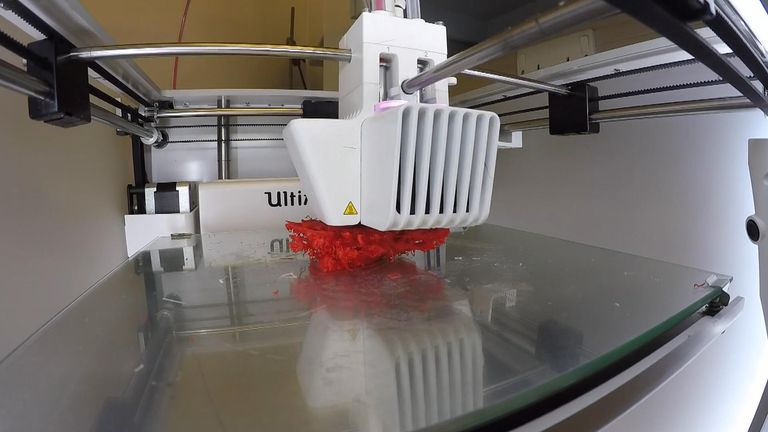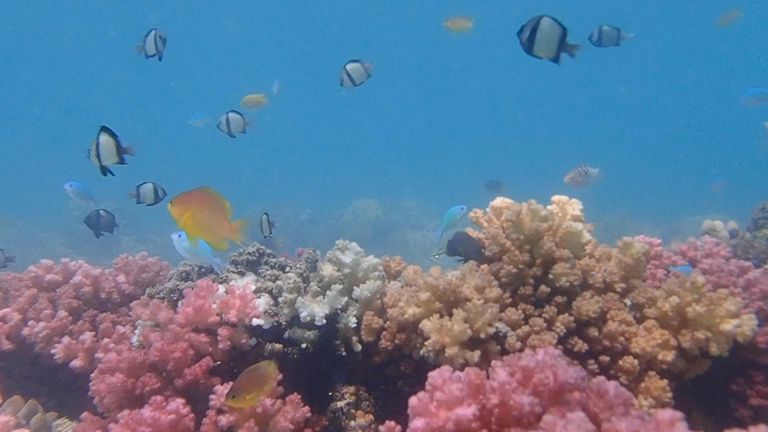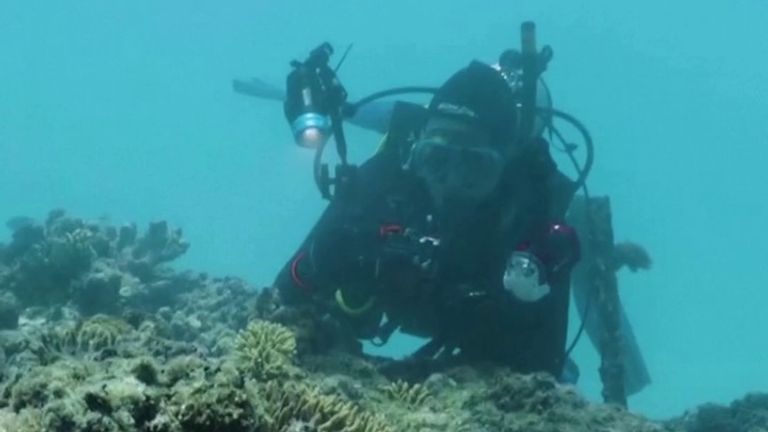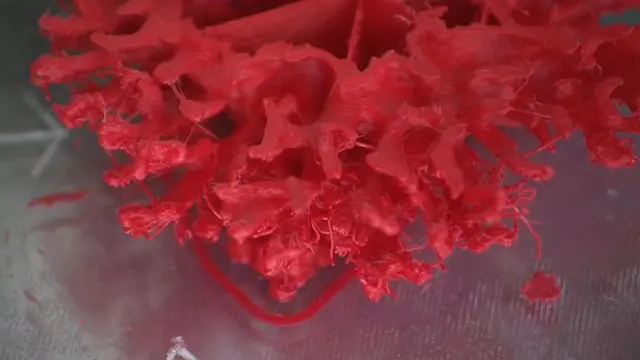Students at the University of Exeter have developed an environmentally friendly technique that could help to rebuild coral reefs.
The project, called CalcifEXE, uses genetically modified bacteria to make calcium carbonate, which can then be shaped into coral "backbones" using a 3D printer.
The scientists hope they can then attach live coral to the backbones, before placing them in the ocean to grow new reefs.
"It will be lovely to think that it's going to become a new weapon in the fight against climate change," Dr Mark Hewlett, the students' supervisor, told Sky News.

Image:Using genetically modified bacteria to make calcium carbonate produces no emissions, the scientists say
Production of high quality calcium carbonate usually requires extreme temperatures and results in high carbon emissions.
But the team's bacteria-based method produces no emissions - instead removing carbon from the air and locking it into the new compound.
"Our project is sucking CO2 from the atmosphere to produce calcium carbonate," said Ariane Goudie, a third-year studying physics.
"It's a carbon neutral, carbon negative alternative to current limestone mining practices."
Climate change is having a devastating impact on coral reefs all over the world.
Rising sea temperatures have led to ocean acidification, which in turn has resulted in a process known as coral bleaching.
This sees the reefs turn white and eventually die, after expelling the algae that gives them their colour.

Image:Natural recovery of coral is still the final goal
"Restoring these reefs is of really crucial importance," Dr Tim Gordon, a marine biologist at the University of Exeter, told Sky News.
"A hundred million people around the world rely on coral reefs every day for their livelihoods.
"People need reefs to feed them, they need them to generate income, they create a huge amount of jobs, they protect their homes from tropical storms.
"So if we lose reefs, as well as being an ecological nightmare, it will become a humanitarian nightmare."
**Subscribe to the Daily podcast on **
Apple Podcasts
**, Google Podcasts
, Spotify
, Spreaker
**
But scientists warn reef restoration is only a temporary solution, and that the natural recovery of coral is still the final goal.
"We can't allow any success of this project to distract us from the real problem," said Dr Sara Fowell, a research scientist at the National Oceanography Centre.
"We can't forget that we need to solve climate change. It really is coral reef's biggest enemy."
The team at Exeter were recently awarded a gold medal at the prestigious International Genetically Engineered Machine (iGEM) Foundation competition for their project.
Please use Chrome browser for a more accessible video player

Dec 2020: Reef restored using IVF technique
Although coral restoration is its primary aim, the students say it has "endless possibilities" given the prevalence of calcium carbonate in industry.
"It is used to whiten paper and increase the brightness of colours in eyeshadow, it combats heartburn and indigestion in the form of tablets, and it can be found in your toothpaste as a cleaning agent," said Eloise Martin, a fourth-year studying physics.
"3D printing limestone using bacteria opens up a multitude of avenues; from medical applications to environmental, it could revolutionise the way we create tailored products."
 简体中文
简体中文

